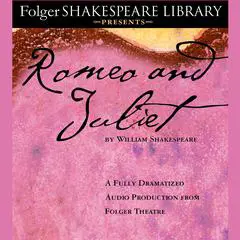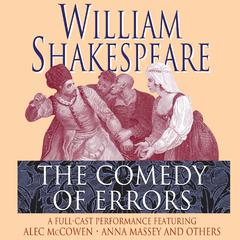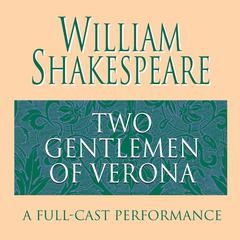 Play Audiobook Sample
Play Audiobook Sample
The Tempest Audiobook
 Play Audiobook Sample
Play Audiobook Sample
Quick Stats About this Audiobook
Total Audiobook Chapters:
Longest Chapter Length:
Shortest Chapter Length:
Average Chapter Length:
Audiobooks by this Author:
Publisher Description
In The Tempest, long considered one of Shakespeare’s most lyrical plays, Prospero, a sorcerer, and his daughter, Miranda, have been stranded on an enchanted island for twelve years. When a shipwreck—caused by the eponymous tempest—brings enemies to the island, the stage is set for comedy, romance, and reconciliation. The Tempest embodies both seemingly timeless romance and the historically specific moment in which Europe began to explore and conquer the New World. Its poetic beauty, complexity of thought, range of characters—from the spirit Ariel and the monster Caliban to the beautiful Miranda and her prince Ferdinand—and exploration of difficult questions that still haunt us today make this play wonderfully compelling.
Download and start listening now!
Prospero’s use of magic in The Tempest is a source of apparently endless critical speculation. It has been defined as benign and redemptive, its violence excused or legitimated. At the opposite end of the critical spectrum it has been defined as witchcraft and read as a metaphor for colonial oppression…By whatever means The Tempest is approached, magic is the defining factor in the relationship between Prospero and Caliban.”
— Times Literary Supplement
Quotes
-
“Part of The Tempest’s permanent facination for so many playgoers and readers, in a myriad of national cultures, is its juxtaposition of a vengeful magus who turns to forgiveness.”
— Harold Bloom -
“The play is full of extraordinary anomalies and fantastic interludes…The creation of Caliban has particularly fascinated critics, who have noticed in his creation a colonial dimension to the play…Critics and historians have debated the extent to which the play endorses or criticizes early English colonial expansion.”
— Amazon.co.uk editorial review -
“Shakespeare’s blend of romance, comedy and political intrigue and his echoings of Virgil and Ovid can make this, like his other late work, feel at once classical and incipiently postmodern.”
— New York Times
The Tempest Listener Reviews
Be the first to write a review about this audiobook!
About William Shakespeare
William Shakespeare (1564–1616), English poet and dramatist of the Elizabethan and early Jacobean period, is the most widely known author in all of English literature and often considered the greatest. He was an active member of a theater company for at least twenty years, during which time he wrote many great plays. Plays were not prized as literature at the time and Shakespeare was not widely read until the middle of the eighteenth century, when a great upsurge of interest in his works began that continues today.























